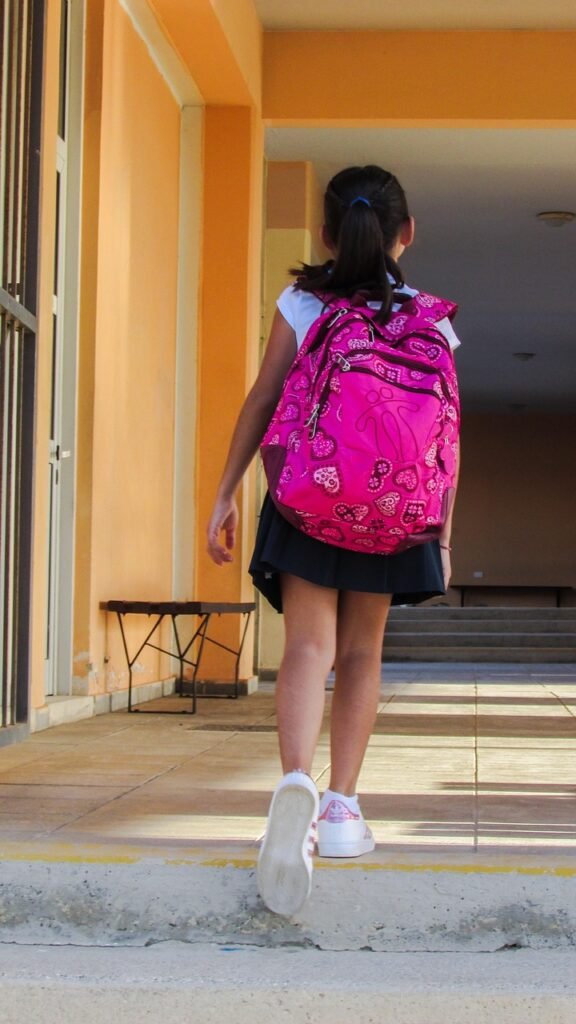Plus: 塞翁失馬 焉知非福 sāi wēng shī mǎ, yān zhī fēi fú
Kids in Taiwan keep the tightened schedule.
Kids in Taiwan often grow up with a packed, tightly structured schedule. Most elementary school students start their day around 8:00 in the morning. When school ends in the afternoon, they don’t go straight home—instead, they rush to “after-school” programs, or what we often call “cram schools.” These spaces extend their academic learning or help develop versatile skills like English, coding, or dance. By the time they get home, it’s usually around 8 or 9 o’clock in the evening.
You might wonder: in such a kind and friendly place like Taiwan, why are kids treated so strictly?
To answer this, we need to look at the historical background.
Taiwan’s emphasis on education has roots in the Japanese colonial period. About 80 years ago, many Taiwanese elites were educated in Japan—then one of the richest and most powerful countries in the world. Under Japanese rule, Taiwan was introduced to Japan’s disciplined and efficient approach to education. Although Taiwanese people were forced to learn Japanese, the education system helped improve literacy, living conditions, and sanitation. Japan also brought infrastructure and a mindset focused on working smart and using technology.
Education became the key to survival and success.
It gave everyone—regardless of background—a fair starting line. As more schools were built across Taiwan, more people gained access to basic knowledge and improved their quality of life. Over time, this created a deeply rooted belief:
Education is the pathway to a better future.
Today, most Taiwanese parents strongly believe that the more children immerse themselves in structured learning environments, the more likely they are to succeed. Not just in school, but in life.
There’s also a practical reason behind these long school days. Parents often work late, so children and parents follow bundled schedules. After the regular school day ends, children usually head to after-school programs, not just for learning, but also because there’s nowhere else to go. Parents are still at work, and these programs offer a safe and constructive environment.
Of course, no one wants their child to feel like they’re training to be a soldier. But there’s a cultural belief that staying engaged all day helps students build discipline, focus, and knowledge. This might sound extreme, especially when compared to Western academic approaches that emphasize freedom and creativity. But in a fast-paced economic society like Taiwan—where time is money—this structured, efficient system seems like the most reliable path.
It’s the path that many adults in Taiwan have walked themselves. While it might not be perfect, it reflects our collective values, history, and the hopes we hold for the next generation.
Latest Episode
In this week’s episode, C#34從精英班到輕鬆學習 | 我的親身故事, we take a close look at Taiwan’s structured and competitive education system—one that offers students a range of academic and vocational paths, yet often comes with intense pressure. I’ll walk you through each stage of the system and share a personal turning point: how leaving my school’s elite class unexpectedly led to growth, better grades, and a fresh perspective on what success really means. Whether you’re familiar with Taiwan’s schooling or simply curious about how pressure affects learning, this episode offers insight, reflection, and an invitation to rethink what it means to succeed in education.
Phrase of the Week
塞翁失馬,焉知非福 (sāi wēng shī mǎ, yān zhī fēi fú)
Literal meaning: The old man lost his horse, but who knows if it’s not a blessing?
Context for this episode: Sometimes, setbacks—like leaving the elite class—can lead to unexpected growth and success. This idiom captures that perfectly.
Sample Sentences:
- 塞翁失馬,焉知非福——有時候失敗也是一種幸運。
Sāi wēng shī mǎ, yān zhī fēi fú—yǒu shíhòu shībài yě shì yī zhǒng xìngyùn.
A loss may turn out to be a gain”—sometimes, failure is actually a kind of luck.
- 他雖然失去了工作,但後來找到了更好的機會,真是塞翁失馬,焉知非福。
Tā suīrán shīqù le gōngzuò, dàn hòulái zhǎodào le gèng hǎo de jīhuì, zhēnshi sāi wēng shī mǎ, yān zhī fēi fú.
Although he lost his job, he later found a better opportunity—truly a blessing in disguise.

